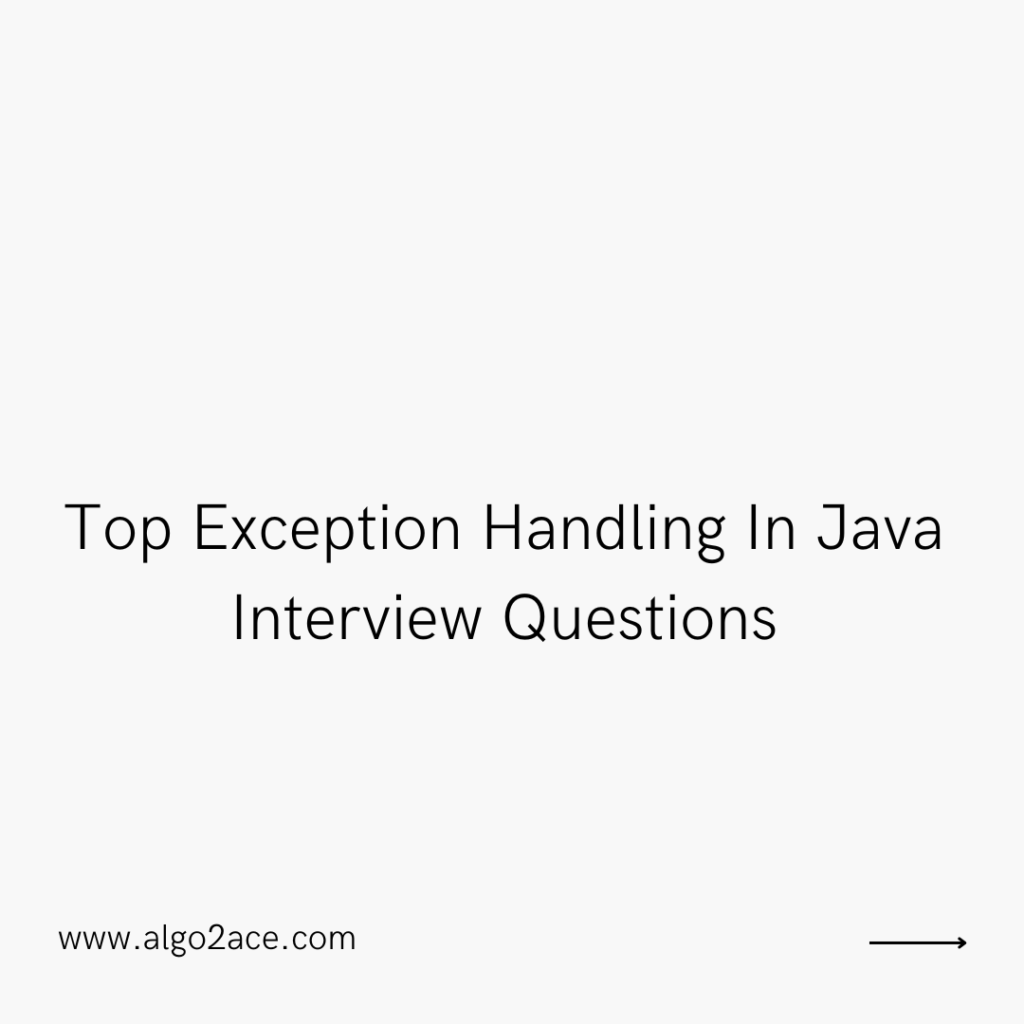Introduction:
Top Exception Handling In Java Interview Questions

Exception handling is a critical aspect of Java programming that ensures robust and error-tolerant applications. As developers grapple with the challenges of creating reliable software, a solid understanding of Java’s exception-handling mechanisms becomes indispensable. This set of interview questions is designed to probe candidates’ knowledge of exception handling in Java, from the basics of try-catch blocks to more advanced concepts like custom exceptions and best practices. Join us in exploring the world of Java exception handling, where candidates will not only showcase their theoretical grasp but also demonstrate how they navigate the intricacies of managing errors and ensuring the resilience of their code.
Top 10 Exception Handling in Java Interview Questions:
1. What is an exception in Java, and how does it differ from an error?
Exception and error are subclasses of `Throwable`. While exceptions are events that disrupt the normal flow of the program (but are recoverable), errors indicate severe issues that are typically beyond the program’s control.
2. Explain the difference between checked and unchecked exceptions.
Checked exceptions are checked at compile time, and the programmer is required to handle or declare them. Unchecked exceptions, on the other hand, are not checked at compile time and are subclasses of `RuntimeException`.
3. How do you use the try-catch block for exception handling in Java?
Provide an example of using a try-catch block to handle exceptions and explain the purpose of the `catch` and `finally` blocks.
4. What is the purpose of the `finally` block in exception handling?
Explain the role of the `finally` block in ensuring that certain code is executed, regardless of whether an exception is thrown or not.
5. Can you describe the differences between the `throw` and `throws` keywords?
The `throw` keyword is used to explicitly throw an exception, while the `throws` clause in a method signature is used to declare the exceptions that a method might throw.
6. What is the significance of the `try-with-resources` statement in Java?
Discuss the advantages of using `try-with-resources` for automatic resource management and provide an example.
7. Explain the concept of custom exceptions. When and why would you create one?
Custom exceptions are user-defined exception classes that extend existing exception classes. Discuss scenarios where custom exceptions might be beneficial and demonstrate how to create and use them.
8. How does Java handle multi-catch blocks, and when would you use them?
Multi-catch blocks allow you to catch multiple exceptions in a single catch block. Explain the syntax and scenarios where using multi-catch blocks is appropriate.
9. What are best practices for exception handling in Java?
Discuss best practices, such as logging exceptions, providing meaningful error messages, and avoiding overly broad catch blocks, to ensure effective and maintainable exception handling.
10. How does exception propagation work in Java?
Explain how exceptions propagate up the call stack and how methods can handle or propagate exceptions. Discuss the role of the `throws` clause in method signatures.
These questions aim to evaluate a candidate’s expertise in handling exceptions in Java, covering fundamental concepts as well as more nuanced aspects of the language’s exception-handling mechanism
Reference:
